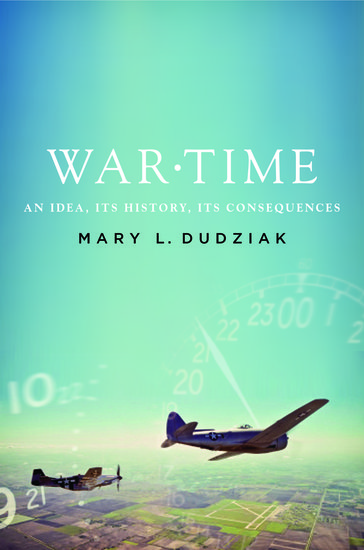By Louis René Beres
To them, I said, the truth would be literally nothing but the shadows of the images. That is certain.
–Plato, The Republic
It is time to look behind the news. Operation Iraqi Freedom is now officially concluded; U.S. operations in Afghanistan are reportedly moving in a similar direction. More generically, however, debate about combat strategy and tactics remains ongoing.

Freud understood. Whether we will choose to support or oppose any particular conflict, core causes and correctives of all war lie deeply embedded in the largely unchanging nature of humankind. It follows that until we can begin to understand and reform this corrosively destructive nature, our entire species will remain both predatory and imperiled.
At its most basic level, what we have witnessed in Iraq, and what we still see clearly in Afghanistan and other places, especially Syria, Pakistan, Sudan, and North Korea, is the malignant tribalism of a chaotic world order. There exists, also, in several regional “theatres,” a resultant or at least associated fusion of sectarian violence with various explicit claims of “sacredness.”
The 19th century German philosopher, Hegel, once commented: “The State is the march of God in the world.” This observation now applies equally to certain sub-state, terrorist groups. Faced with the dizzying unreason of both already-sovereign and sovereignty-seeking “tribes,” states and aspiring states that routinely extend compelling promises of inclusion and immortality in exchange for “martyrdom,” our global system stands a diminishing chance of permanent survival.
We must also consider another, unprecedented fusion. This is the coming together of atomic capability with possible leadership irrationality. Presently, such an ominous combination is most readily worrisome in Iran, and perhaps North Korea and Pakistan, but there are also many other areas in which decision-making elites could sometime choose to value certain presumed religious obligations more highly than any “normal” preference for group self-preservation.
As a species, we cannot hope to “fix” any particular conflicts until we have first understood the underlying human basis of violent world politics. The grinding chaos of Iraq and Afghanistan is better identified as a symptom, than as a disease. Especially noteworthy are the tangible consequences of human death fears, and also the corollary terrors of social or national exclusion.
Global violence and disorder have their deepest roots in the pain of individuals. This primal malady is the ubiquitous incapacity of people to discover meaning and comfort outside the (state or terror) group, and, instead, within themselves. In our own intellectual history, this trenchant observation was already offered in the mid-19th century by the American Transcendentalists, Emerson and Thoreau.
There is always a crucial inner meaning to world order and global civilization. This individual meaning can only be uncovered amid a widening willingness to look beyond assorted group promises of personal salvation in exchange for war or terrorism.
“Just wars,” as we have long known, do have a correct place in the world. They must, however, be fought only to protect the innocent, never to slaughter anonymous noncombatant “others” in sordid and bloody bargains for immortality. Often, it is the “denial of death” by individuals that spawns war and terror.
There is no greater power in world affairs than the power over death. From the beginning, all principal violence in world politics has been driven by a contrived tribal conflict between and within nations, and by a conspicuously “sacred” promise to reward the “faithful” with freedom from mortality.
Without an outsider to loathe — a “heathen,” an “other” — we humans are apt to feel impotent, lonely, and lost. Drawing almost all of our benefits of self-worth from the collective, from what Freud (following Nietzsche and Stirner) had called the “primal horde,” we technically superior beings remain unable to satisfy even the most elementary requirements of peaceful coexistence. Ironically, our substantial progress in certain technological and scientific realms has had no counterpart in fostering civilized human relations. We have advanced aircraft and advanced telephones, but we still remain locked into barbaric patterns of social interaction.
In planetary politics, we humans remain dedicated to all conceivable varieties of ritual violence, and to various sacrificial practices that are conveniently disguised as war, politics, or diplomacy. Oddly, perhaps, this grotesque dedication is not necessarily an example of immorality or foolishness. After all, our entire system of international relations, first shaped after the Thirty Years’ War at the Peace of Westphalia (1648), remains rooted in a codified pattern of institutional conflict. Usually, we call this the “balance of power.”
For global civilization hope exists, but it must now sing softly in an undertone. For some, the palpable horror of life on earth may even create a deafening noise, but it will still be possible to listen for faint sounds of grace and harmony. To survive as a species, we must first pay very close attention to our most private states of anxiety, restlessness, and apprehension.
“The man who laughs,” understood playwright Bertolt Brecht, “has simply not yet heard the horrible news.”
Iraq, Afghanistan, Iran, etc. are merely current symptoms. The immanent perils of life on earth can never be undone solely by improving global economics, fashioning new international treaties, defeating endless insurgencies, or even by spreading “democracy.” Rather, we humans now need to acknowledge ourselves as individual persons.
Always, the herd or the mass is the author of suffering.
Louis René Beres was educated at Princeton (Ph.D., 1971), and is Professor of International Law at Purdue. Born in Zürich, Switzerland, on August 31, 1945, he is the author of many major books and articles dealing with world politics, literature, jurisprudence, and philosophy. He is a regular contributor to OUP Blog.
For further reading on war, we recommend War Time: An Idea, its History, its Consequences by Mary L. Dudziak.
View more about this book on the ![]()
![]()
Subscribe to the OUPblog via email or RSS.


Recent Comments
There are currently no comments.